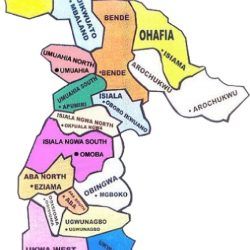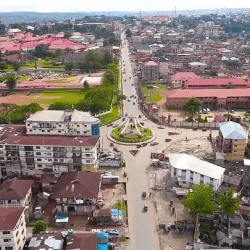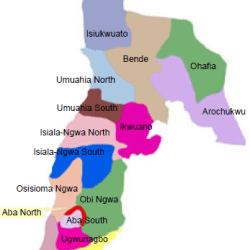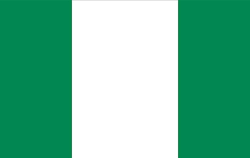Uratta is a prominent community located in Abia State, which is part of the southeastern region of Nigeria. The area is known for its rich cultural heritage, strong communal values, and agricultural activities. Like many towns and villages in Abia State, Uratta reflects the vibrant traditions and social structures of the Igbo people, one of Nigeria’s largest ethnic groups.
Uratta, Abia State, is a vibrant and culturally rich community that exemplifies the strength of Igbo traditions and the resilience of rural Nigeria. While it faces challenges common to many rural areas, including infrastructure and healthcare access, Uratta’s potential lies in its agricultural resources, communal spirit, and cultural heritage. By addressing these challenges and embracing opportunities for development, Uratta could see a future of sustainable growth and continued cultural vibrancy.
Geographical and Cultural Overview
Uratta is situated within the Umuahia North Local Government Area (LGA) of Abia State, an area that is part of the broader Igbo heartland. The community is well-connected to Umuahia, the capital of Abia State, and benefits from its proximity to urban centers while maintaining its rural identity. The landscape is typical of southeastern Nigeria, characterized by lush greenery, fertile land, and a tropical climate, making it ideal for agricultural activities.
Culturally, Uratta, like much of Igboland, is steeped in traditions that have been passed down for generations. The community places great importance on family, respect for elders, and communal responsibility. Traditional practices, local festivals, and ceremonies remain a vital part of life in Uratta, reflecting the community’s strong connection to Igbo customs.
Economic Activities: A Hub of Agriculture
Agriculture forms the backbone of Uratta’s economy, with the majority of its inhabitants engaged in farming. The fertile land in the region supports the cultivation of staple crops such as:

In addition to farming, small-scale trading and local crafts also contribute to the economy. Many local markets in and around Uratta serve as centers for trade, where farmers and traders exchange goods and produce.
Social and Cultural Life
The social structure of Uratta is closely tied to the Igbo traditional system. The community is led by traditional rulers, often referred to as Eze, who play an important role in maintaining order and overseeing local customs. These leaders, along with the council of elders, ensure that customs and traditions are upheld, especially during important ceremonies such as marriages, burials, and festivals.
One of the key cultural highlights in Uratta is the New Yam Festival, celebrated in line with the larger Igbo culture. This festival is a significant event where the community comes together to give thanks for a bountiful harvest, offer prayers, and enjoy communal feasting. It is also an opportunity for cultural displays, including traditional dances, music, and masquerades, all of which are vital elements of Igbo cultural expression.
Religion: A Blend of Traditional Beliefs and Christianity
Religious life in Uratta, as in much of southeastern Nigeria, reflects a blend of traditional African beliefs and Christianity. While Christianity is the dominant religion, with many people attending various denominations like Catholic, Anglican, and Pentecostal churches, elements of traditional spirituality persist. For instance, some community members still honor ancestral spirits and partake in cultural rituals that are deeply rooted in Igbo cosmology.
Traditional festivals, such as those involving masquerades, often have religious undertones, connecting the community with its ancestors and the spiritual world. These festivals serve not only as cultural events but also as religious observances that reinforce communal bonds and respect for the past.
Education and Infrastructure
Education is a key priority in Uratta, as it is in many Igbo communities where the value of education is highly regarded. Several schools in the area, ranging from primary to secondary levels, provide basic education to the younger generation. The community benefits from its proximity to Umuahia, where more advanced institutions, including tertiary education facilities, are available.
In terms of infrastructure, Uratta enjoys access to essential services such as roads connecting it to nearby towns and markets. However, like many rural areas in Nigeria, it still faces challenges related to water supply, electricity, and healthcare infrastructure, which remain areas of development for both the local government and non-governmental organizations.
Challenges and Opportunities for Development
While Uratta is rich in cultural heritage and natural resources, it also faces several challenges typical of rural communities in Nigeria. One of the major issues is the need for improved infrastructure, particularly in the areas of roads, healthcare, and education. Poor road conditions, for instance, can limit access to markets and affect the transportation of goods, which in turn impacts the local economy.
Additionally, access to healthcare services is limited, and many residents rely on traditional medicine or travel to nearby towns for medical treatment. Efforts to improve these areas could significantly enhance the quality of life in Uratta.
Despite these challenges, Uratta has significant potential for growth. Its agricultural sector, particularly with the increasing demand for organic and locally produced goods, presents opportunities for economic development. With better infrastructure and access to markets, the community could become a hub for agricultural trade in the region.








